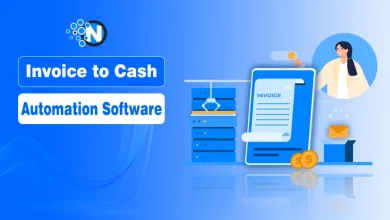How College Students Can Manage Finances and Stay Out of Debt?

College can be one of the most exciting and financially stressful times in your life. Between tuition, textbooks, rent, and everything else, it is easy to lose track of spending and fall into debt. But it doesn’t have to be that way.
With some awareness and discipline, you can take control of your money before it controls you. In this guide, I have added complete details on how college students can manage their finances and stay out of debt.
Just catch on to the tactics I have mentioned here, and you will come to know how gracefully you can prevent debt.
How College Students Can Manage Finances and Stay Out of Debt?
In the under section, I have mentioned the tips college students should follow so that they can manage their finances and stay out of debt.
1. Create a Realistic Budget You’ll Actually Follow
The first step toward maintaining financial health and achieving financial goals in college is having a clear and realistic budget. It means that you should list all sources of income, like part-time jobs, parental support, or financial aid, and all your monthly expenses.
Be honest. Include everything, like rent, food, textbooks, transportation, subscriptions, and even weekend outings.
Once you have laid it all out, separate the essentials from the extras. It gives you clarity on where your money should go and where it doesn’t have to. A simple 50/30/20 rule (needs/wants/savings) can be a helpful framework if you are just getting started.
2. Avoid the Trap of Easy Credit
Credit cards are tempting. Many students sign up without fully understanding interest rates or minimum payments. The result? Debt that accumulates fast and becomes a long-term burden.
While building credit is important, it should be done carefully. If you get a student credit card, use it only for small, regular purchases, like gas or groceries, and pay it off in full every month. It helps establish a credit history without racking up interest.
Never treat a credit card like free money. It is not. It is a high-interest loan in disguise.
3. Understand Your Student Loan Balance Early On
It is easy to ignore your student loans while in school. But that’s a mistake. You have to understand how much you owe, what your interest rates are, and what repayment might look like after graduation can shape smarter decisions now.
You can start by checking your student loan balance through your federal loan servicer or loan dashboard. If you are unsure, visit the Federal Student Aid website to get a full picture of your federal loans.
When you know your numbers, it can help you avoid over-borrowing in the future and plan for repayment later. Even better if you can make small payments on interest while you are in school, do it. It can save you a lot over the life of the loan.
4. Build an Emergency Fund (Even a Small One)
Unexpected costs are part of life. Maybe your car breaks down. Maybe you have to fly home unexpectedly. Without an emergency fund, these moments can force you into high-interest debt.
To avoid this, you have to start small. Even if you save just $10 or $20 a week, you can add up over time. That’s why you should aim for at least $500 in a separate savings account. It is not a full safety net, but it is a cushion. And having it means you won’t need to swipe a credit card for every surprise expense.
5. Make the Most of Campus Resources
Colleges offer more free and discounted resources than most students realize. Campus gyms, mental health services, food pantries, and financial aid counselors are just the beginning.
Use the library instead of buying textbooks. Attend free student events for entertainment. Take advantage of student discounts at local restaurants, movie theaters, and even software platforms. These small choices help keep more cash in your pocket.
Ask questions, too. If you are struggling with tuition or rent, your school may have emergency aid or grants available. But you won’t know unless you ask.
6. Work Part Time Without Burning Out
A part-time job can reduce how much you need to borrow or rely on family support. Campus jobs, in particular, are often more flexible and understanding of student schedules. Plus, they offer real-world experience that strengthens your resume.
But balance is key. If a job interferes with your ability to study, it may cost more in the long run, in lower grades, fewer scholarship renewals, or delayed graduation. So, it would be best if you aim for 10–15 hours a week and reassess if your workload grows.
7. Learn the Difference Between Wants and Needs
When you want to learn the difference between wants and needs, it seems obvious, but it’s a skill. And in college, it can make or break your finances.
You need to eat. You don’t need to eat out every night. Similarly, you need books for class. But, you don’t need to buy them new when used copies or rentals exist. College life is full of peer pressure and spending temptation.
You have to learn to pause before buying. Ask yourself: Is this necessary, or just convenient? If you don’t already, get comfortable saying no to things that don’t fit your budget. The people who matter won’t mind, and your bank account will thank you.
8. Avoid Lifestyle Inflation
Once you start earning more, maybe through a job, internship, or refund check, it’s tempting to start spending more, too. It is called lifestyle inflation, and it can quietly sabotage your finances.
More income does not mean you should upgrade your wardrobe or start ordering delivery every night. Keep your expenses steady and use that extra money to pay off debt, save, or invest. The habits you build now will carry into your post-college life.
Final Thoughts – Be Proactive, Not Reactive
Most financial stress in college comes from inaction. Not budgeting? Not checking account balances? Even not understanding loans? The good news? All of that is fixable.
Managing money in college isn’t about being perfect. It is about being aware. Check in with yourself weekly. Track your spending. Adjust when needed. The more proactive you are now, the more prepared you will be after graduation.
Debt doesn’t have to be part of your college experience. With a little planning and some practical habits, you can graduate with a diploma and peace of mind.




